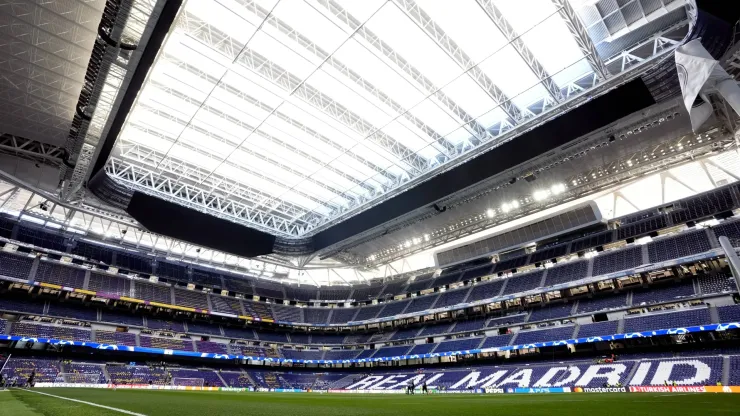
The iconic Santiago Bernabeu Stadium in Madrid is emerging as the prime candidate to host the 2030 World Cup final. Morocco had planned to construct a purpose-built stadium with 120,000 seats for the event in the past. However, FIFA is now strongly favoring Real Madrid’s ancient home.
Spanish sports daily Marca reports that FIFA has all but decided on the Santiago Bernabeu as the venue for the final match of the 2030 World Cup. This decision comes despite significant lobbying from Morocco, which had proposed a state-of-the-art stadium to host the final. The renown and historical importance of the Bernabeu have allegedly had a role in FIFA’s choice of venue.
Los Blancos’s insistence on maintaining ownership of the Bernabeu is a major stumbling block to the venue’s finalization. That would have to be for approximately three months around the time of the World Cup. Planning and execution of the event’s logistics need this time frame. Real Madrid, however, seems hesitant due to the financial implications; as the stadium is also a key venue for concerts and other events, generating significant revenue.
Negotiations are currently underway between FIFA and Real Madrid to resolve these concerns, the report adds. The discussions also encompass arrangements for the 2025 World Club Cup, with FIFA aiming to maximize its revenue from the competition.
Listing out the 2030 World Cup stadiums
Spain, Portugal, Morocco, Paraguay, Uruguay, and Argentina will jointly host the 2030 World Cup. According to Diario AS, Spain will provide 11 stadiums, Morocco will offer six, and Portugal three. In South America, Buenos Aires, Montevideo, and Asuncion will host games as a tribute to the first World Cup in Uruguay.
The Spanish government will soon sign documents presenting the host cities for Spain; with Murcia and Gijon excluded from hosting duties. It is still necessary to negotiate the outstanding issues between the clubs and municipal authorities of Vigo and Valencia.
Despite the turmoil within the Royal Spanish Football Federation (RFEF) in recent years, FIFA still “believes in Spain and in the final at the Bernabeu”, the report adds. This belief is bolstered by the strong relationship between Real Madrid president Florentino Pérez and FIFA president Gianni Infantino. The collaboration between these two influential figures is seen as crucial in securing the Bernabeu as the final venue.
Spain plays top role in hosting 2030 event
The RFEF has proposed several stadiums for the World Cup, including Camp Nou and RCDE Stadium in Barcelona, San Mames in Bilbao, Santiago Bernabeu and Cívitas Metropolitano in Madrid, and La Cartuja in Sevilla, among others. However, with Morocco’s participation, the number of stadiums in Spain may decrease, although there is no official confirmation yet.
Fernando Sanz, a member of the 2030 World Cup organizing committee, emphasized Spain’s footballing heritage and its pivotal role in the World Cup project. While Morocco is constructing a massive stadium with a capacity of over 115,000 spectators, FIFA’s trust in Spain’s soccer infrastructure and history remains strong.
PHOTOS: IMAGO.
200+ Channels With Sports & News
- Starting price: $33/mo. for fubo Latino Package
- Watch Premier League, Liga MX & Copa Libertadores
The New Home of MLS
- Price: $14.99/mo. for MLS Season Pass
- Watch every MLS game including playoffs & Leagues Cup
Many Sports & ESPN Originals
- Price: $10.99/mo. (or get ESPN+, Hulu & Disney+ for $14.99/mo.)
- Features Bundesliga, LaLiga, NWSL, & USL
2,000+ soccer games per year
- Price: $7.99/mo
- Features Champions League, Serie A, Europa League & EFL
175 Premier League Games & PL TV
- Starting price: $7.99/mo. for Peacock Premium
- Watch 175 exclusive EPL games per season






